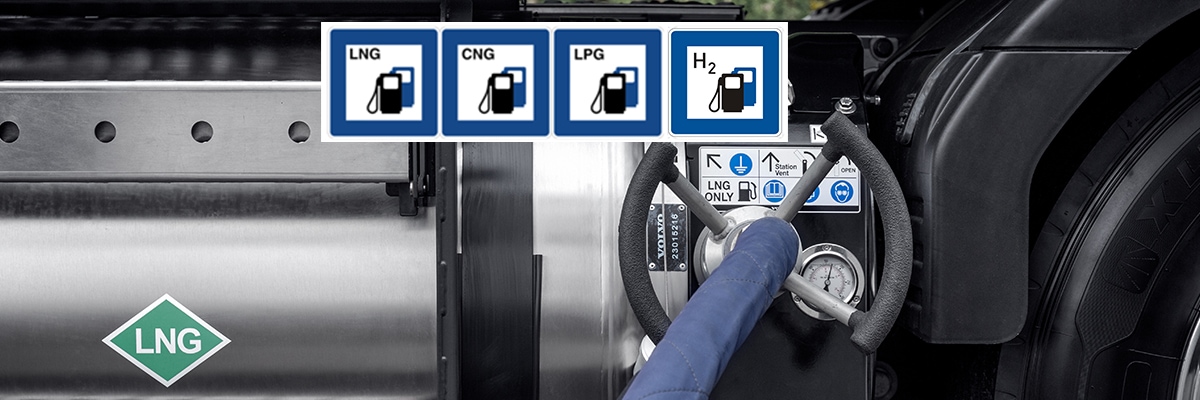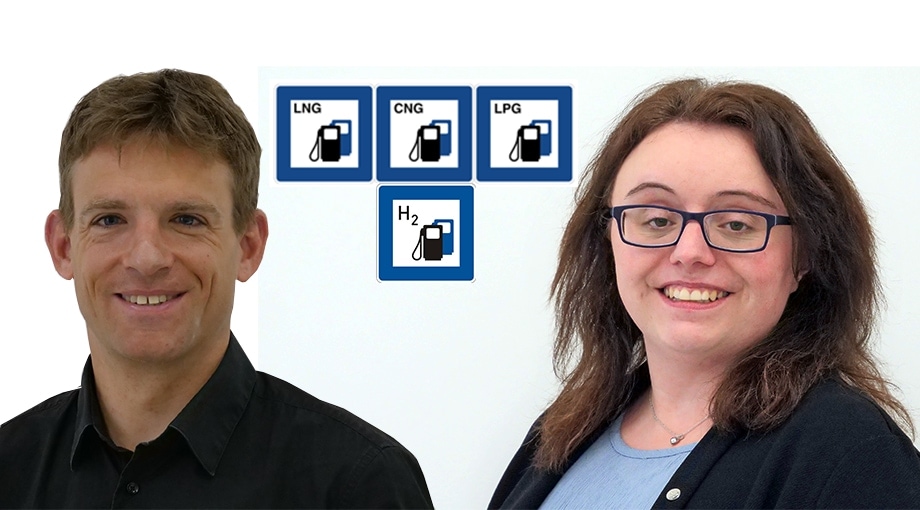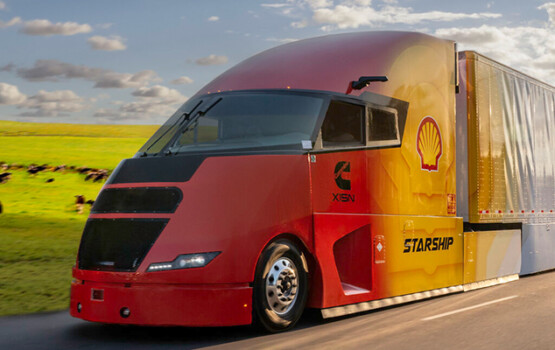Portal for more climate-friendly mobility

AGVS increases workshop knowledge
Gaseous fuels are ecological and interesting alternatives. Garages should also be familiar with their properties, which is where a new training course comes in. The modular training programmes of Auto Gewerbe Verband Schweiz (AGVS) (Swiss commercial car association) enable needs-based and broad-based training in CNG, LNG, LPG and hydrogen.
 Markus Peter, Head of Technology and Environment, and Manuela Jost, Vocational Training and Occupational Safety, at the AGVS are jointly responsible for the new training course. Source: AGVS media
Markus Peter, Head of Technology and Environment, and Manuela Jost, Vocational Training and Occupational Safety, at the AGVS are jointly responsible for the new training course. Source: AGVS media
CNG (Compressed Natural Gas) and biogas as fuels have long been an attractive option, especially for passenger cars, to be more environmentally friendly and have lower running costs on the road. CNG engines emit up to 25% less CO2 than other combustion engines. Emissions of nitrogen oxides (NOx) are even up to 95% lower. In Switzerland, people who use CNG save around a third on fuel costs compared to a petrol or diesel engine. If you refuel biogas, you’ll almost be driving in a CO2-neutral manner. Liquefied petroleum gas (LPG) is also used, especially in neighbouring countries. In contrast to CNG and biogas, it is highly flammable and does not volatilise by itself when released into the air. Both ex-works systems and retrofit solutions are used for these types of fuel. This means that the employees of garages and workshops also need to know how to maintain and repair such vehicles.
 There is currently a real boom in gaseous fuels, especially in the commercial vehicle sector. Source: Lidl
There is currently a real boom in gaseous fuels, especially in the commercial vehicle sector. Source: Lidl
As gaseous fuels are also playing an increasingly important role in the commercial vehicle sector, it is important to refresh and disseminate this knowledge among Swiss garage owners. In addition to CNG and biogas, the trucks mainly use liquefied CNG (LNG) and hydrogen (H2). When carrying out maintenance, set-up and repair work, it is important to pay attention to certain special features in order to ensure safe handling. Until now, training courses for garage owners on gaseous fuels have mainly focused on CNG and LPG. With the newly created “Gaseous Fuels” basic module, course providers like Auto Gewerbe Verband Schweiz (AGVS) can now address a wider target group.
The one-day basic module is intended to sensitise people working in the vehicle industry to the safe handling of the four different gaseous fuels (CNG, LNG, LPG and H2). Building on the basic module, course participants can complete one or more advanced modules on the individual gaseous fuels. Interested? For further information, please contact: transmission@agvs-upsa.ch (jas, 1 February 2022)
You might also be interested in

Shell Starship on record hunt
